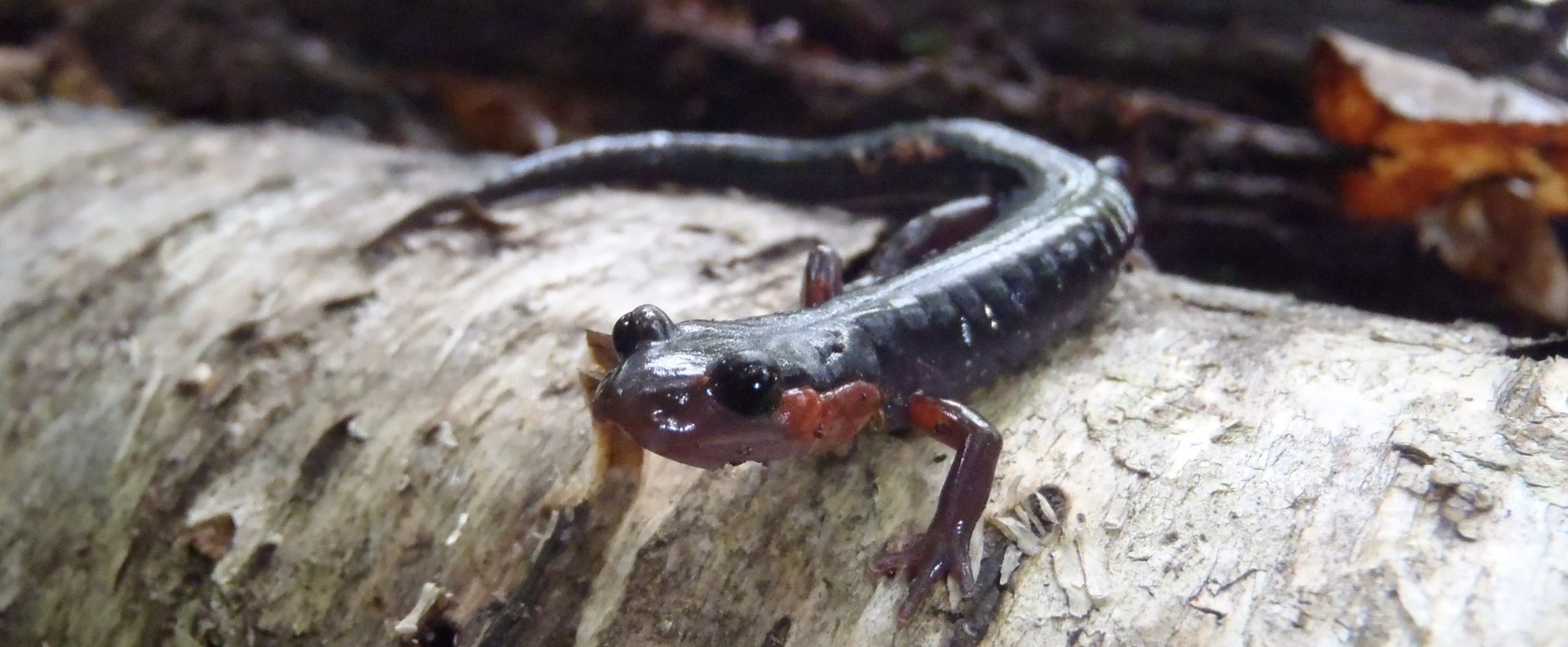
Fighting a fungal threat to Salamanders
Ecologist Karen K. Lips wants to protect wild salamanders from exposure to a deadly new fungal infection spreading through the pet trade.

Ecologist Karen K. Lips wants to protect wild salamanders from exposure to a deadly new fungal infection spreading through the pet trade.
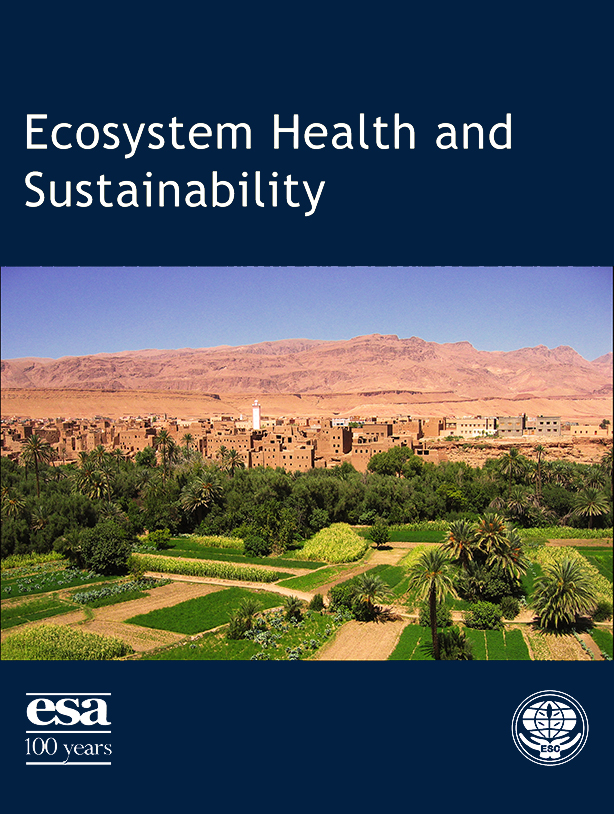
Ecosystem Health and Sustainability showcases applications of ecological science in support of sustainable development during an era of extensive and accelerating human and environmental change. Today, the Ecological Society of America (ESA) and the Ecological Society of China (ESC) jointly launch a new open access scholarly research journal to foster communication of applied ecological research across national and disciplinary boundaries….
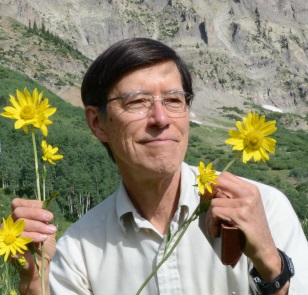
ESA members have elected David Inouye, a plant ecologist and professor emeritus of the Department of Biology at the University of Maryland, College Park, to lead the Society as president of the board of directors for the 2014-15 year. Inouye stepped into the post this August at the 99th Annual Meeting of the Ecological Society. “I’m greatly honored to be…
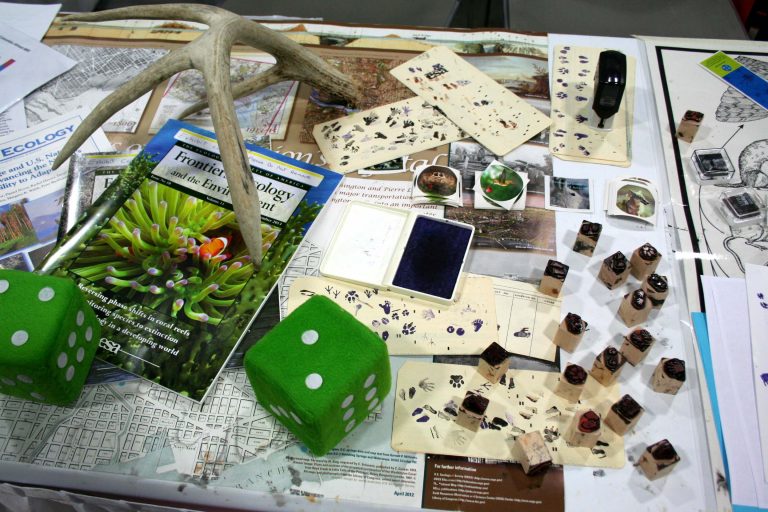
ESA went to the USA Science & Engineering Festival on the weekend of April 26-27 to talk about ecology with some of the 325,000 people who attended. Special thanks to University of Maryland ecologists David Inouye (ESA’s president-in-waiting) and Ben Bond-Lamberty for coming down to the Washington DC convention center for the event. At our booth we had a terrarium…
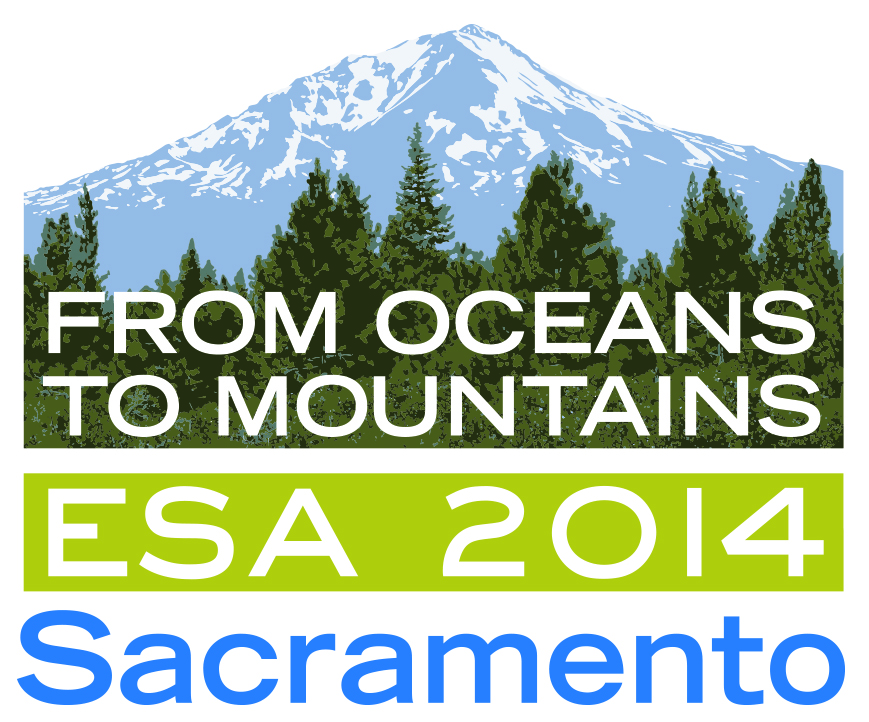
Have a science story you want to tell? Send in your pitch for our public pub talk at the Ecological Society’s 99th Annual Meeting this summer. Contest deadline: Friday, 30 May 2014.
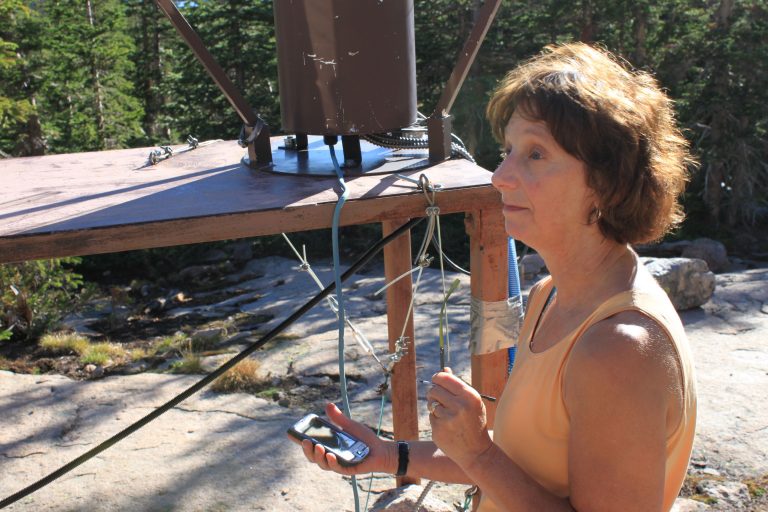
Jill Baron takes up the chair of ESA’s governing board, which lays out the vision for overall goals and objectives for the Society.
When 3,500 individuals from across the country and around the globe convene for a scientific conference such as the Ecological Society of America’s (ESA) recent meeting in Austin, Texas, it takes a toll on the environment. There is the carbon footprint from the various modes of travel to get to the meeting. But there is also the broader environmental cost…
It is no secret that the world is becoming increasingly digital. The evening news has less of a role in disseminating leading headlines than a friend or colleague does. That is, social media outlets have become primary sources of news—in general, stories vetted by friends, coworkers and family members have gained more credibility than a random, syndicated news report. This…
Currently, U.S. students can graduate high school without taking a course that covers ecological science or that encourages ecological literacy—the ability to understand the interconnectedness of life on Earth. By not being exposed to this material, students’ career paths can be dramatically impacted. On a basic level, they may not consider the advantages of exploring ecology as an option for post-secondary education. But sometimes, they may never understand the complex dynamics of natural and built environments, including the role of humans in an ecosystem.
Last week at the Ecological Society of America’s (ESA) 95th Annual Meeting in Pittsburgh, scientists presented research on the foraging behavior of bushbabies, the effects of RoundUp herbicide on amphibians, the benefits of microbial communities inside the human body and the global issues surrounding invasive species, pollution, global warming, elevated nitrogen and hypoxia, among others. Here is just some of the research from ESA’s annual meeting.
Just down the street from the David L. Lawrence Convention Center in downtown Pittsburgh—where the Ecological Society of America (ESA) is holding its 95th Annual Meeting this week—is a vacant lot adopted by the City Charter High School. Last Sunday, ESA ecologists and students visited the lot which is being restored by the 10th graders of the City Charter High School in coordination with the Student Conservation Association (SCA).
The reasons for sharing research with the media are relatively widely known: If a certain research topic is going to be highlighted as an important issue, then it needs to be shared with the public. And reporters are one of the best ways to give research exposure. The question, then, is what makes research newsworthy?